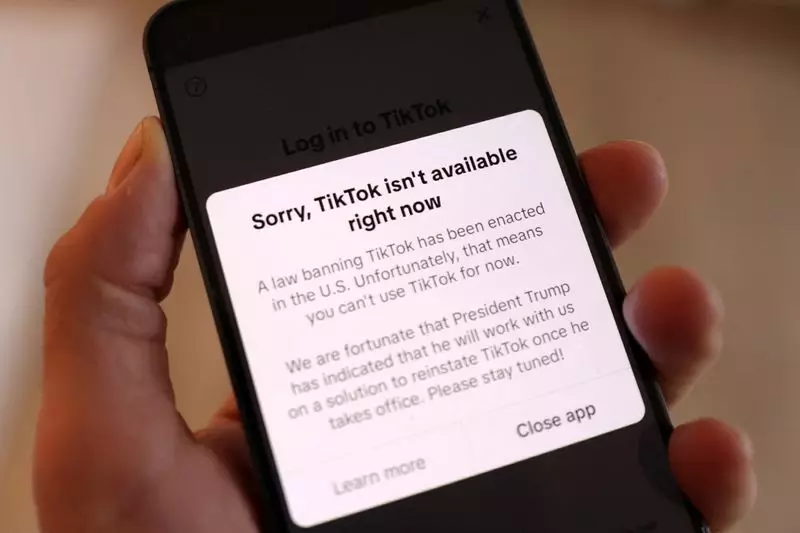As of Tuesday, TikTok’s accessibility on major platforms like Apple’s App Store and Google Play remained in limbo, following a turbulent weekend rooted in political actions. President Donald Trump’s executive order, signed just a day prior, aimed to postpone the imminent ban on the popular short-video application for an additional 75 days. This decision was framed against a backdrop of rising concerns over national security, compelling ByteDance, TikTok’s Chinese parent company, to potentially divest its U.S. operations to avoid an outright ban.
The legal landscape altered drastically when a law took effect on Sunday, enforcing stringent measures on any application deemed a national security threat. Despite these challenges, TikTok briefly reemerged after Trump assured that the app’s operations would not be subjected to punitive financial repercussions. Nevertheless, the app’s physical presence on the app stores continued to be obstructed, leaving users in uncertainty and developers questioning the implications of these legal entanglements.
Industry observers speculate that both Apple and Google are exercising caution in their handling of TikTok, as the companies could face substantial penalties for distributing an app under a government-sanctioned ban. Statements from both tech giants substantiated this precarious situation, with Apple’s App Store proclaiming, “TikTok and other ByteDance apps are not available in the country or region you’re in,” and Google Play informing users that “Downloads for this app are paused due to current U.S. legal requirements.” The resounding silence from all parties involved only amplified the uncertainty surrounding TikTok’s fate in the U.S. market.
Former Treasury Secretary Steven Mnuchin, who had previously shown interest in acquiring the app, disclosed in a recent CNBC interview that he had placed his bid on hold due to China’s reluctance to engage in negotiations. Despite these setbacks, Mnuchin expressed keen interest in the venture, envisioning a transfer of technology to disrupt any ties to ByteDance and allocate greater control to U.S. stakeholders.
Voicing a nuanced approach to TikTok’s ownership dilemma, Bill Ford, CEO of General Atlantic, articulated to CNBC that pathways exist to alter the app’s U.S. ownership without necessitating a complete sale. His comments highlighted an essential aspect of the ownership structure, revealing that ByteDance is primarily held—over 60%—by non-Chinese institutional investors, such as BlackRock and General Atlantic, while its founders maintain a collective stake of 20%.
This complex web of ownership underscores the challenges TikTok faces amid geopolitical tensions and regulatory scrutiny. The app, hailed by some as a “terrific business,” reflects broader implications within the tech industry, entangling national security concerns with global market strategies. The eventual outcome will not only determine the fate of TikTok but will also set a precedent for how similar foreign-owned tech companies navigate legal and geopolitical landscapes in the future. As this situation continues to evolve, all eyes remain fixed on potential verdicts and actions that may shape the very essence of social media in the U.S.

